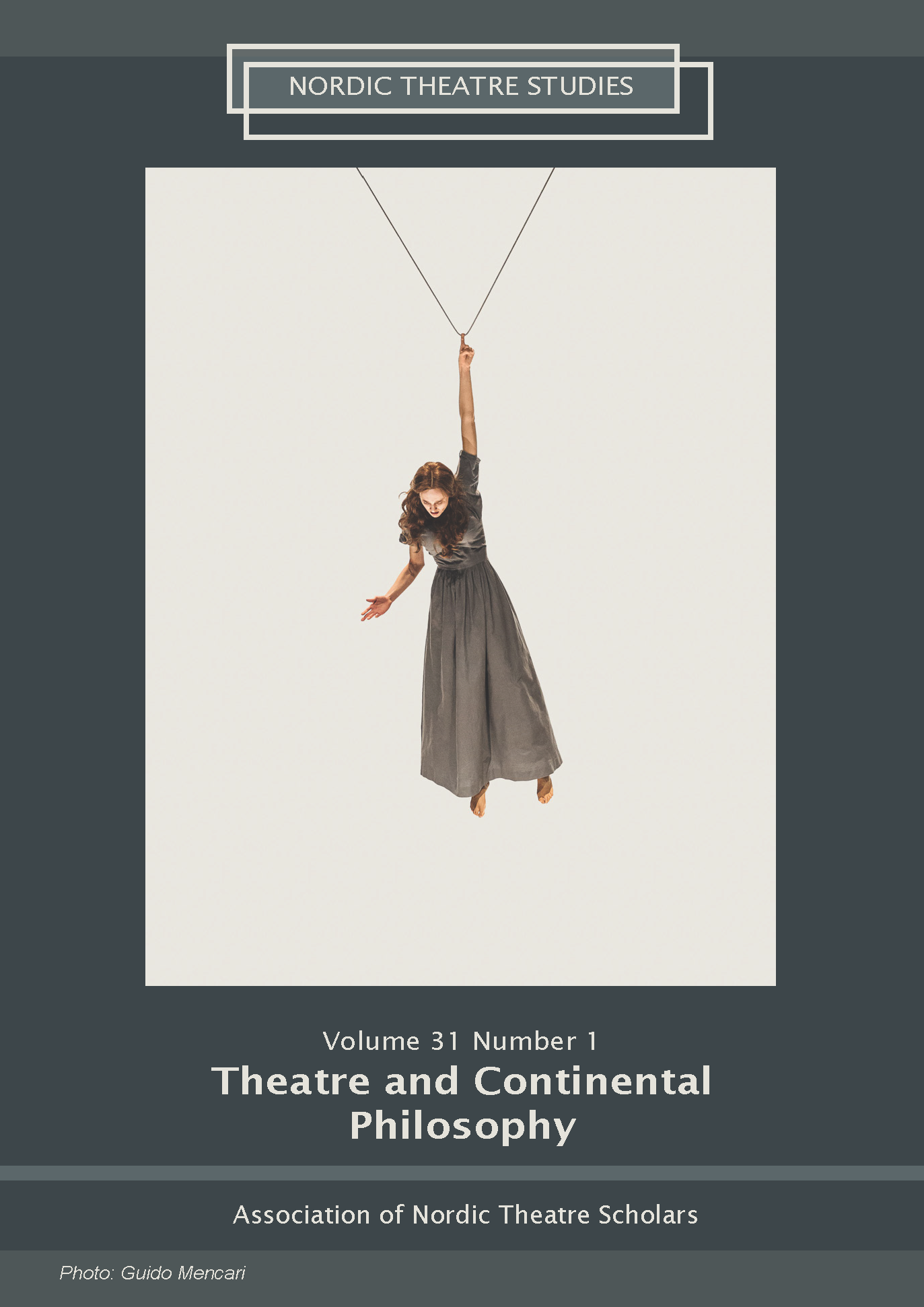“almost invisible until now”
Antigone, Ismene, and the Dramaturgy of Tragedy
DOI:
https://doi.org/10.7146/nts.v31i1.113013Keywords:
dramaturgy, tragedy, Hegelian dialectics, feminist theory, performance practiceAbstract
This essay discusses Sophocles’ Antigone in relation to its Hegelian legacy, engaging with the play from a directorial perspective. Drawing on the work of Judith Butler, Anne Carson , Bonnie Honig, Peggy Phelan and Cecilia Sjöholm, I attempt to envision a contemporary mise en scène that repositions feminine subjectivity within the dramaturgy of tragedy. Centering on the relationship between Antigone and Ismene, as well as on the possibility of revaluing Ismene’s position in terms of political and dramaturgical agency, I hope to challenge dramaturgical conventions that assume binary, heteronormative relations as the primary framework of interpretation for female characters, and death and destruction as the only possible outcome for what is positioned as feminine. This resituated reading of the drama examines the function of embodied performance in processes of meaning-making, and offers dramaturgical structure as a site for strategies of resistance.
References
Aristotle. 1987. The Poetics of Aristotle. Trans. Stephen Halliwell. Chapel Hill: The University of North Carolina Press.
Billings, Joshua. 2014. Genealogy of the Tragic: Greek Tragedy and German Philosophy. Princeton, NJ: Princeton University Press.
Butler, Judith. 2000. Antigone’s Claim: Kinship Between Life and Death. New York: Columbia University Press.
Carson, Anne. 2006. “Tragedy: A Curious Art Form.” Euripides. Grief Lessons: Four Tragedies. Trans. Anne Carson. New York: New York Review Books.
Goldhill, Mark. 2012. Sophocles and the Language of Tragedy. Oxford and New York: Oxford University Press.
Griffith, Mark. 2010. “Psychoanalysing Antigone.” S.E. Wilmer and Audronė Žukauskaitė (eds.). Interrogating Antigone in Postmodern Philosophy and Criticism. Oxford and New York: Oxford University Press.
Hagström-Ståhl, Kristina. 2016. “Feminine Destruction and Masculine Protagonism: Notes on Gender, Iterability, and the Canon.” PARSE journal #3: 73-84.
Hegel, G.W.F. 1807/1977. Phenomenology of Spirit. Trans. A. V. Miller. Oxford and New York: Oxford University Press.
Honig, Bonnie. 2013. Antigone, Interrupted. Cambridge and New York: Cambridge University Press.
Phelan, Peggy. 1997. Mourning Sex: Performing Public Memories. New York: Routledge.
Roche, Mark W. 2006. “Introduction to Hegel’s Theory of Tragedy.” PhaenEx 1, no 2 (Fall/Winter 2006): 11-20.
Rokem, Freddie. 2010. Philosophers & Thespians: Thinking Performance. Stanford, CA: Stanford University Press.
Sjöholm, Cecilia. 2004. The Antigone Complex: Ethics and the Invention of Feminine Desire. Stanford, CA: Stanford University Press.
Sophokles. 2015. Antigone. Trans. Anne Carson. London: Oberon Books.
Wilmer, S. E. and Audronė Žukauskaitė (eds.). 2010. “Introduction.” Interrogating Antigone in Postmodern Philosophy and Performance.
Downloads
Published
How to Cite
Issue
Section
License
The copyright belongs to the authors and Nordic Theatre Studies. Users can use, reuse and build upon the material published in the journal but only for non-commercial purposes. Users are allowed to link to the files, download the files, distribute the files on a local network (preferably by links), upload the files to local repositories if their institutions require them to do so, but not republish the files without proper agreements with the journal and the author.

